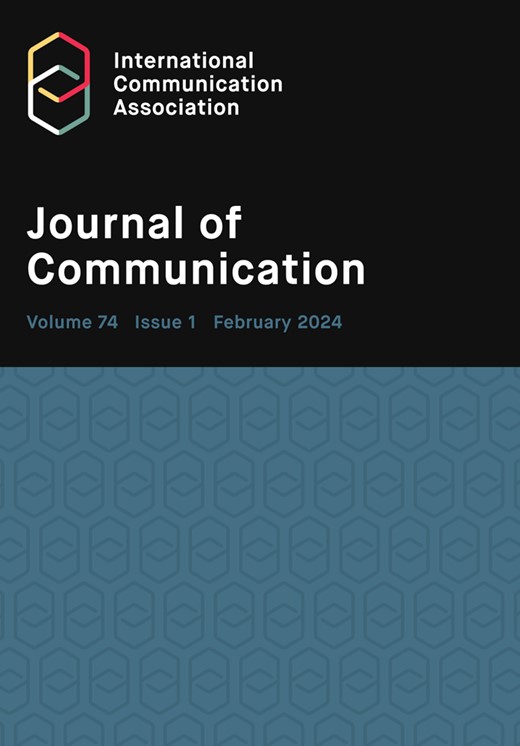无处不在的长尾谎言分布:来自五大洲的七项研究
IF 5.5
1区 文学
Q1 COMMUNICATION
引用次数: 0
摘要
真理默认理论(Truth-default theory, TDT)是一种关于人类欺骗和欺骗检测的理论,它有两个命题,分别关注撒谎行为频率的总体比率和个体差异。谎言流行率的分布被指定为呈现非正态正偏分布,其中大多数人是规范诚实的,大多数谎言是由少数骗子说的。总之,这些预测构成了TDT中少数几个多产的说谎者模块。尽管先前的研究结果与TDT预测一致,但TDT的泛文化范围保证了用新的和多样化的样本来测试这些预测。目前的研究(总N = 3,463)从中国、德国、墨西哥、以色列、肯尼亚、俄罗斯和巴西取样。在七个地点以及语言和文化亚样本中都观察到类似的长尾分布。这些发现增加了越来越多的实证文献,提供了与TDT一致的泛文化证据。本文章由计算机程序翻译,如有差异,请以英文原文为准。
The ubiquity of long-tail lie distributions: seven studies from five continents
Abstract Truth-default theory (TDT), a theory of human deception and deception detection, has two propositions that focus on the overall rate of lying and individual variation in the frequency of lying behavior. The distribution of lie prevalence is specified to exhibit a non-normal, positively skewed distribution in which the majority of people are normatively honest, and most lies are told by a few prolific liars. Together, these predictions form the few prolific liars modules in TDT. Although the findings of prior research align with TDT predictions, the pan-cultural scope of TDT warrants testing such predictions with new and diverse samples. The current studies (total N = 3,463) sampled participants from China, Germany, Mexico, Israel, Kenya, Russia, and Brazil. Similar long-tail distributions were observed in each of the seven locations, and in language and cultural subsamples. These findings add to a growing empirical literature providing pan-cultural evidence consistent with TDT.
求助全文
通过发布文献求助,成功后即可免费获取论文全文。
去求助
来源期刊

Journal of Communication
COMMUNICATION-
CiteScore
11.60
自引率
5.10%
发文量
41
期刊介绍:
The Journal of Communication, the flagship journal of the International Communication Association, is a vital publication for communication specialists and policymakers alike. Focusing on communication research, practice, policy, and theory, it delivers the latest and most significant findings in communication studies. The journal also includes an extensive book review section and symposia of selected studies on current issues. JoC publishes top-quality scholarship on all aspects of communication, with a particular interest in research that transcends disciplinary and sub-field boundaries.
 求助内容:
求助内容: 应助结果提醒方式:
应助结果提醒方式:


